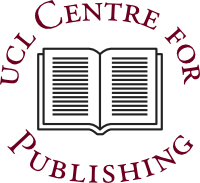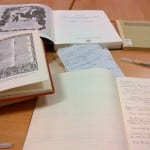A note on the ‘institution of a School for the training of Librarians’ at University College London by Professor Elizabeth Shepherd
By Ian Evans, on 24 September 2019
In November 1917, the President of the Library Association, Sir John MacAlister, wrote to the Provost of UCL ‘to enquire whether it would be possible to institute at University College a School of Librarianship…to be established in co-operation with the Library Association’. The London School of Economics had offered a course in librarianship in co-operation with the Library Association (LA) between 1902 and 1915, but that had lapsed during the War. The arrangement had been that the LA paid the fees of the lecturers whom they also recommended, while the LSE provided teaching space and other expenses, however, initial healthy numbers dwindled to 3 or 6 students by 1915. After some further discussions, a proposal was sent to the Professorial Board, which set up a Committee to confer with the Library Association. The Committee reported positively on the proposal on 22 March 2018, having reassured itself that the LSE did not propose to resume its earlier course. The Director of the LSE concluded that ‘the number of new recruits to librarianship…was so small as to preclude any hope of making an institution of the kind successful’.
Recommendations went to the College Committee, ‘that it is desirable to institute a School for Librarianship at University College, provided that the necessary Endowment Fund is forthcoming’. The Library Association had been in communication with the Carnegie Trustees seeking an annual grant to support the School which was ‘receiving their sympathetic consideration’. A Joint Sub-Committee between UCL and the LA was invited to prepare a scheme for submission to the UCL Committee. The ambition was to have ‘something founded upon the lines that will enable it to develop into a University School of librarianship comparable with the great Schools of Librarianship in the United States’.
The proposal was to establish a staff comprising a Director, a Secretary, and Teaching Staff in four core areas of study, ie Bibliography, Classification, Cataloguing, Library History, Organisation and Routine. Special courses would also be provided in Literary History, Palaeography and the Study of Archives, and Indexing. The LA proposed to transfer its extensive library of ‘Technical Library Literature’ to UCL. The Carnegie Trust agreed to fund the School for five years initially at the rate of £1500 per annum. The scheme was approved by the University of London Senate and the plan was to start teaching in October 1919.
In June 1919, UCL College Committee approved a statement of the duties and terms of appointment of the Director of the School of Librarianship and agreed to appoint Dr E A Baker, Secretary to the Education Committee of the LA and on the Joint Committee. A row then erupted between the University Senate and the LA, after the LA Council passed a resolution disapproving of Baker’s appointment and insisting that the Directorship be advertised. It seems that some members of the LA had hoped to start a school at a northern university and were seeking to derail the UCL proposal. However, after reconsideration and lawyers’ letters, the University and UCL prevailed and Dr Baker’s appointment was confirmed in August 1919. Sir Frederick Kenyon was invited to deliver the address at the opening of the School of Librarianship in October 1919.
In its first decade, 387 full time and 289 part time students completed courses, some sponsored by local education authorities such as London County Council which sponsored 50 places for London librarians. The School expanded to occupy most of the Henry Morley Building at UCL. The Carnegie Trust renewed its grant for a second five year period. In 1930, UCL started to fund raise for a capital investment of £50,000 to secure the School’s future.
Elizabeth Shepherd
Sources:
UCL Special Collections, Records Office UCLCA/CC: UCL Minutes of College Committee, 17/10/1917 to 2/07/1918, Meeting 5/03/1918; Meeting 30/04/1918; Meeting 3/06/1919.
University of London Library: University Correspondence Central File, 1918-1919 CF 1/19/208, including letters from Carnegie Trust.
University of London Library: UL 3/7, miscellaneous papers on the School of Librarianship, 1901-1930.
 Close
Close






